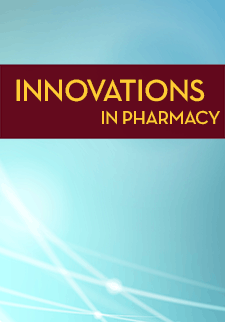Baseline Knowledge and Education on Patient Safety in the Ambulatory Care Setting for 4th Year Pharmacy Students
Jessica W. Skelley
Chase Carpenter
Trisha Elkins
Thomas W. Woolley, Jr
B. DeeAnn Dugan
DOI: https://doi.org/10.24926/iip.v6i1.369
Keywords: patient safety, experiential education, pharmacy education
Abstract
Objectives: To assess the baseline knowledge of fourth year student pharmacists on their ability to properly identify and categorize medication related problems (MRP) during their Advanced Pharmacy Practice Experience (APPE) in the ambulatory care setting, and to assess the efficacy of a written resource designed to educate and train users on identification and documentation of MRP's and used for this purpose with participating students on their ambulatory care APPE.
Methods: A pretest consisting of ten multiple-choice questions was administered electronically to fourth year student pharmacists (N=18) at the start of their ambulatory care APPE. The test was designed to assess both the students' baseline knowledge regarding MRP's, and their ability to identify a wide variety of medication-related problems. Students then received a written copy of The Medication Therapy Intervention & Safety Documentation Program training manual and were asked to read it in its entirety in the first week of their APPE. Finally, students were given a posttest survey (identical to the pretest) to complete to assess if their knowledge had increased from baseline.
Results: The average score for the 18 students taking the baseline knowledge pre-test was 63.33%, indicating limited baseline knowledge regarding the identification and classification of MRP's. In assessing the effectiveness of the written training document, the overall posttest results compared to pretest results did not indicate improvement in students' knowledge or ability to properly identify and classify medication related problems (MRP) after reviewing the training manual. The average scores declined from 63.33% on the pretest to 62.78% on the posttest, although this was not found to be statistically significant (p = 0.884). However, a statistically significant decline in students' knowledge occurred on one specific question, which tested their ability to classify MRP's (p = 0.029).
Conclusions: Based on the results of the pre-test, students at our institution enter their APPE year with limited baseline knowledge of medication safety within the ambulatory care setting. Results from the posttest indicate potential ineffectiveness of a written document in providing effective education on MRP's to students in the experiential setting. Education may be made more effective with a hands-on, active learning approach that overcomes the limitations of other passive forms of learning.
Type: Student Project


